From no man’s land to mission-ready
How Innovation Foundation found its voice
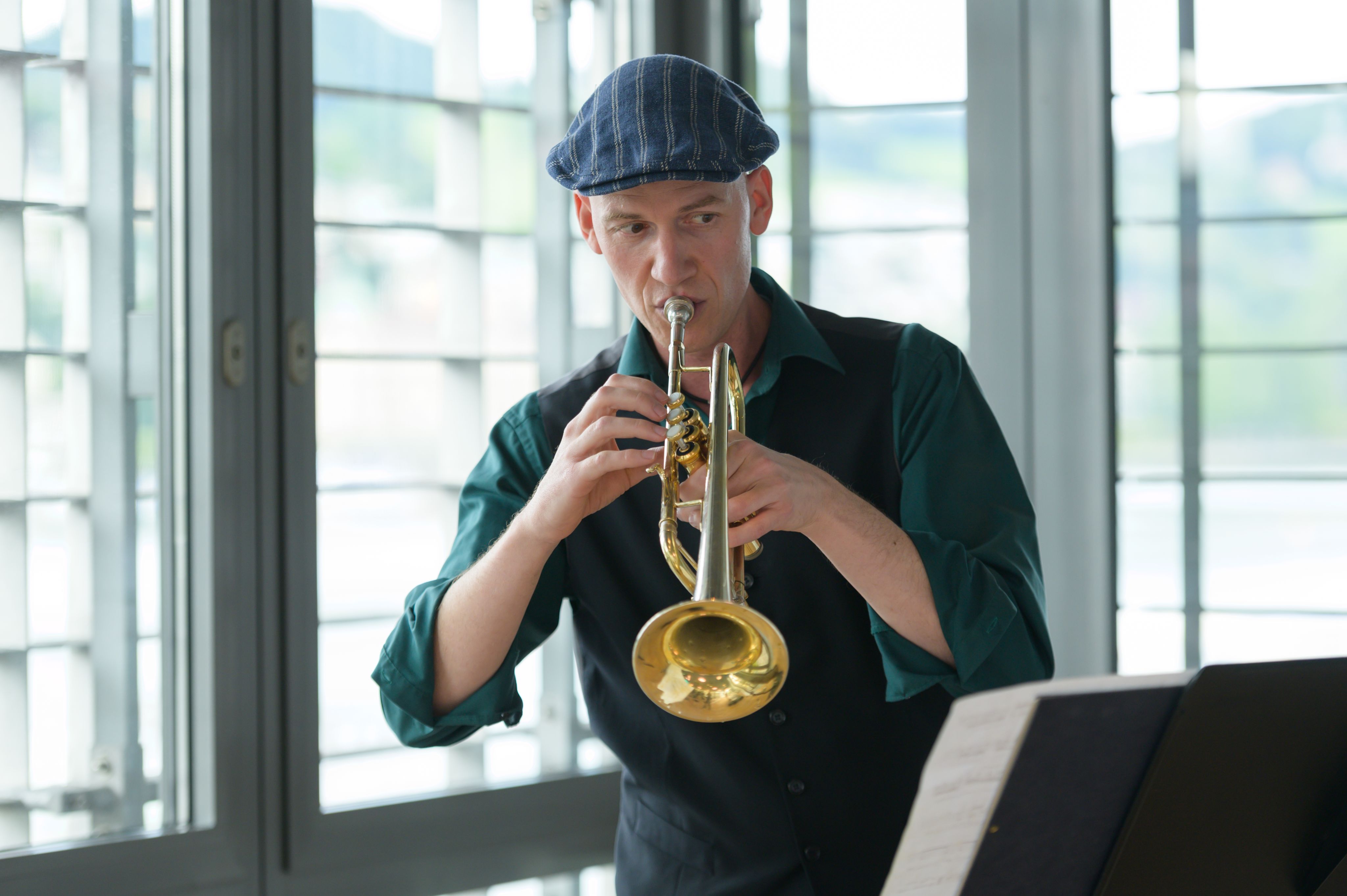
A too-large portfolio, confused staff, a mixed identity – and diluted impact: for Adecco Group Foundation, something had to change. A wholesale reset not only led to a new brand, it also helped the foundation to balance its dependence on the company with preserving its own impact integrity.
It’s never easy for a corporate foundation to draw on close links with its related company while also remaining independent. Because of its ties to a commercial business, a corporate foundation may risk mission drift – moving away from its original purpose under the pressure of corporate priorities – and as such losing what EVPA calls “impact integrity”.
But impact integrity for corporate social investors – impact-driven organisations such as foundations, impact funds or social businesses that are related to a company – is not as simple as resisting potential business pressures. For a foundation, being too deeply intertwined with its related company can also dilute its impact. This is what happened to the Innovation Foundation, in its early years as the Adecco Group Foundation. It took a comprehensive reset before it could refocus its mission, its activities and its identity, and find its own way to impact integrity.
Explore more in this series:
Managing an oxymoron: navigating the thin line between connection and independence at Trafigura Foundation
Flat-packed social purpose: how Ikea’s ‘impact integrity’ clicks into place
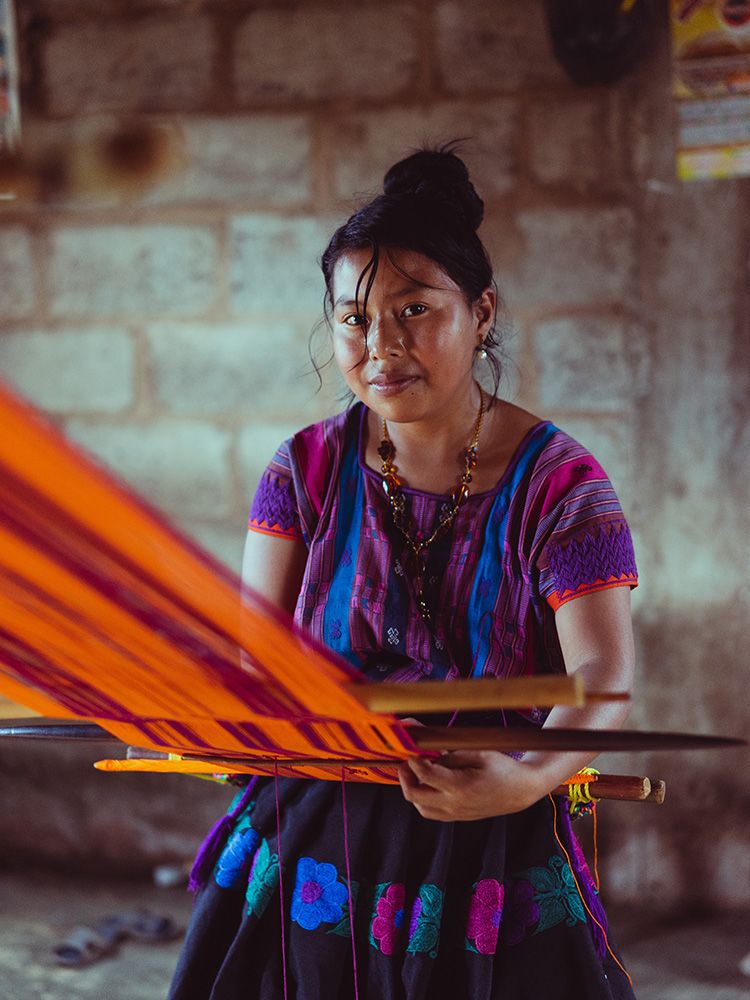
Interwoven aims: some corporate social investors are deeply intertwined with their related company – but that brings risk
Interwoven aims: some corporate social investors are deeply intertwined with their related company – but that brings risk
Navigating through no man’s land

The Adecco Group Foundation was launched in 2017 as a global foundation of Zürich-based human resources giant Adecco Group. It was initially given a very broad remit. “At that point, it was really mainly an umbrella for a number of existing programmes and projects from the group,” says Cynthia Hansen, the foundation’s managing director.
The foundation statutes were very broad, including education and health, art and culture, development aid, humanitarian disaster and crisis aid, as well as environmental protection.
“Part of the genesis of the global foundation was to pull those things together under one umbrella where you would give them a home,” says Hansen. The thinking was that more synergy between initiatives and running them more professionally would increase overall impact. But even this effort to harmonise things “was very much bits and pieces”.
The foundation’s original brief was as varied as the Athlete Programmes, a partnership with the International Olympic and Paralympic Committees on a career transition programme for Olympians; Win4Youth, a reward scheme that converts Adecco Group employees' physical activity into donations to charity; a competition called “CEO for One Month” to drive youth employability; and various corporate social responsibility initiatives.
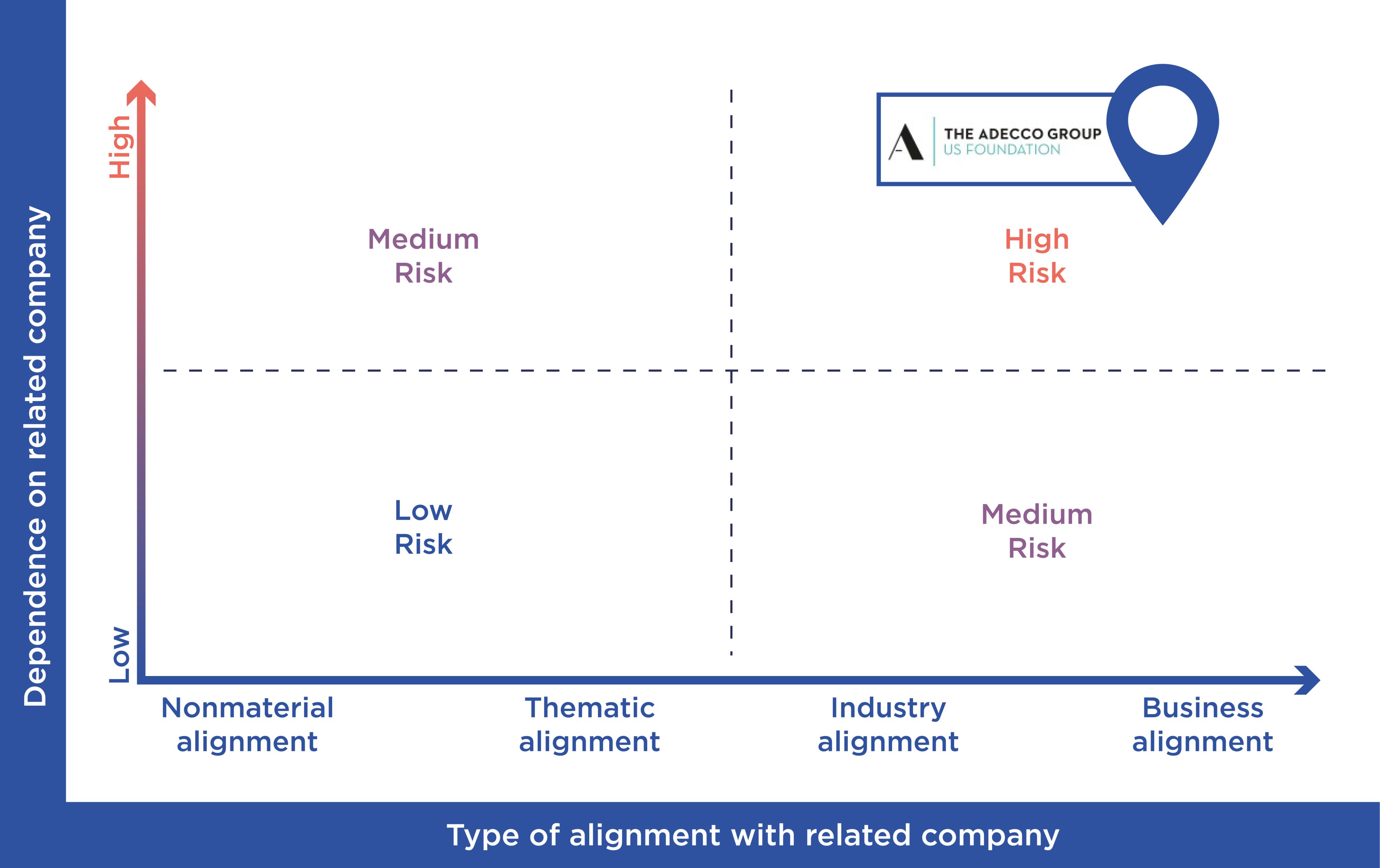
Because it was so intertwined with the company, the foundation was at high risk of losing its impact integrity by diluting its impact
Because it was so intertwined with the company, the foundation was at high risk of losing its impact integrity by diluting its impact
A first problem arose when the Swiss regulator said CSR – deemed a corporate function – and the Athlete Programmes – which were too akin to sponsorship – could not legally be part of the foundation: under Swiss regulation, foundations (which benefit from tax advantages) must work in the public interest and the company cannot directly benefit from what they do.
“So the upshot was, those two things didn't go into the foundation, but they did stay in my team,” Hansen says. In other words, her staff found themselves managing some activities under the foundation’s remit, and others under the company’s remit.
Hansen was leading a team of nine, who all came from different departments of Adecco Group and had never worked together. Building cohesion was very difficult – for some team members themselves, it was difficult to know who exactly they were working for, somewhat left in “no man’s land”.
“I think that the biggest problem was that the portfolio was too large, and it kept pulling in a lot of different directions, so there was no coherent story,” Hansen recalls. “Each of the things were useful on their own, but they didn't hold together as a narrative… It was diluting the impact.”
The portfolio kept getting bigger, with more and more initiatives pulled out of the Adecco Group and put into the foundation’s brief (while meeting the regulator’s public interest requirement).
“It had a mixed identity,” says Hansen. “It made it difficult to not only create a narrative, but create a really cohesive team as well”.
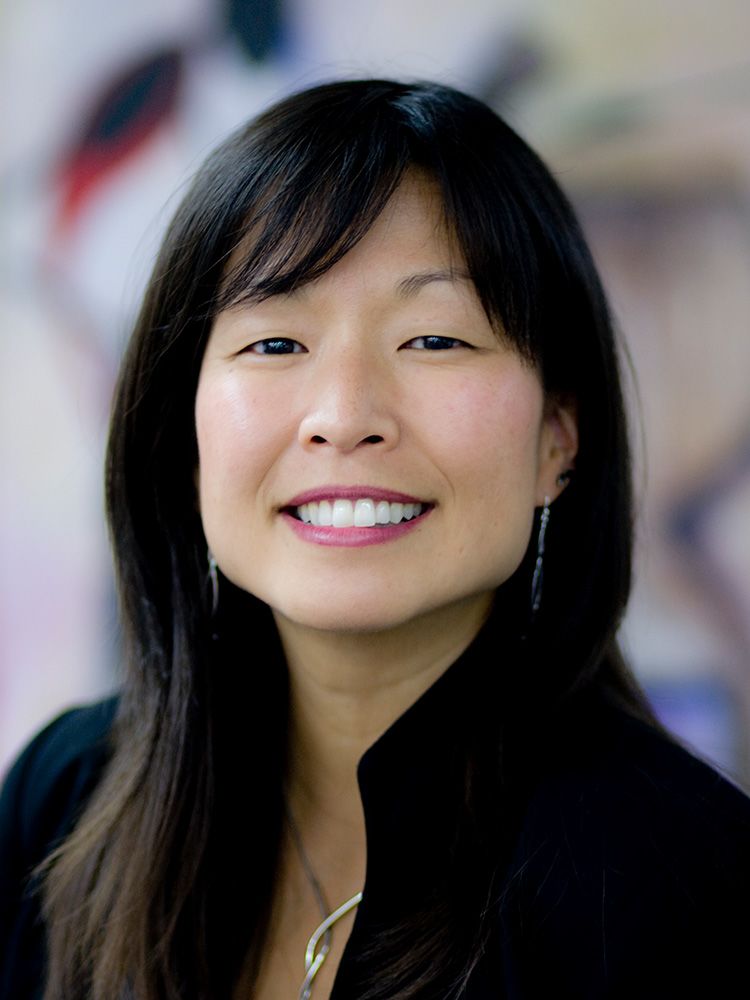
Cynthia Hansen: the Adecco Group Foundation had a "mixed identity"
Cynthia Hansen: the Adecco Group Foundation had a "mixed identity"
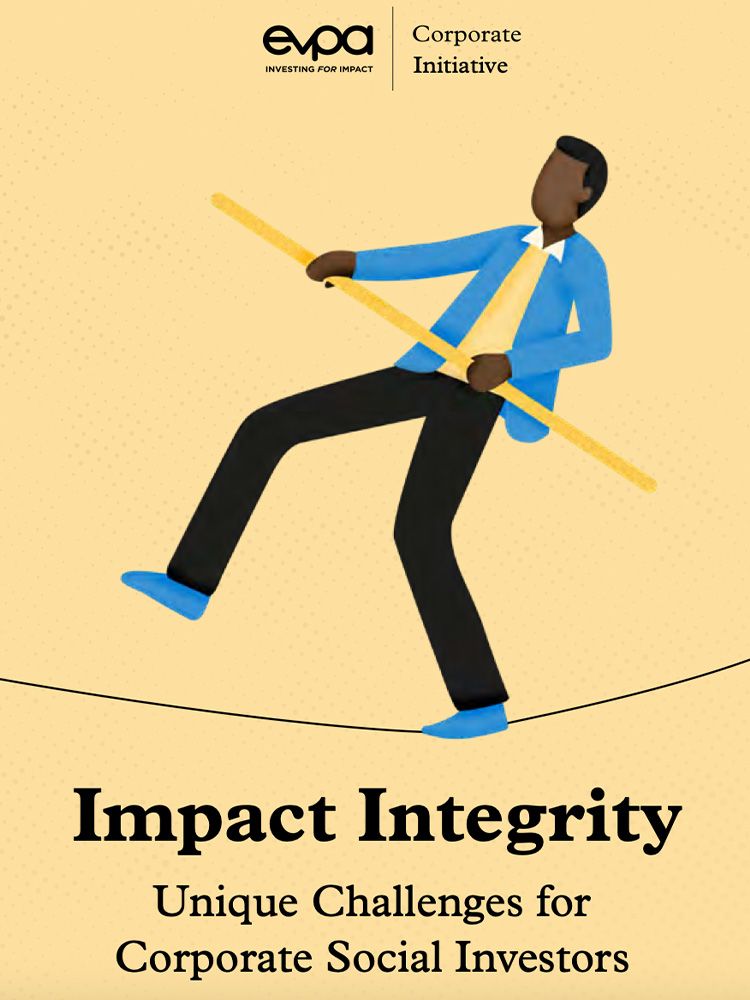
EVPA research explores the types of relationship between corporate social investors and their related business
EVPA research explores the types of relationship between corporate social investors and their related business
Glossary
Corporate social investor
A legal or organisational structure related to a company (by name, funding, structure and/or governance), with the primary intention of creating social impact. These may be corporate foundations, impact funds, accelerators or social businesses, for example.
Impact integrity
Adherence to an organisation’s social mission, regardless of (negative) external influence – in particular from its related company due to its commercial agenda.
Strategic alignment
When a foundation or other corporate social investor works in a sector, industry, geography or business area overlapping with the one in which its related company operates, so it can leverage the company’s assets and expertise to maximise its impact.

"Each of the things were useful on their own, but they didn't hold together as a narrative"
Reset and refresh

As early as year two, Hansen had mapped out a “spin-off process” for all of the programmes and projects to focus the foundation’s work, but her board didn’t have the appetite for it: the foundation was still so new. The pivotal moment came when Jean-Christophe Deslarzes became the new chair of both Adecco Group and the foundation in April 2020. “I think if the leadership had not changed, it would have been very hard to make the kind of change that we did,” says Hansen.
She briefed him on the situation. “He said, let's just stop, take stock, do a review with the board, and then decide where we want to go next,” Hansen recalls. “That was absolutely perfect, because it's not something that I could have said and been heard in the same way.”
The review happened in the second half of 2020, with the help of an external facilitator, “which really helped”, Hansen explains. The conclusion was to refocus the purpose of the foundation, which became “employability and access to labour markets for underserved populations, as a means of securing sustainable livelihoods”. This clear objective and target group separated it from the company, which focuses on employment generally.
Importantly, the foundation would achieve this mission only as a social innovation ‘lab’. An innovation lab had been created in 2018 within the foundation, alongside its other activities, to incubate, develop and scale projects that improve access to employment for underserved or disadvantaged communities. That approach fitted the foundation’s new, narrower mission.
In this way, the foundation had clearly defined what it wanted to do, and how it wanted to achieve it. “That basically gave us a box,” says Hansen. The board went through all the legacy projects then run by the foundation to see what would fit in the ‘box’: in the end, none of them did – so they all had to find a new home.
“2021 was when all of that spin-off happened. That was a huge amount of change management,” Hansen explains.
Most of the foundation’s initiatives went back to the Adecco Group’s remit. The two programmes that had been successfully developed in the lab were ready to find their feet elsewhere.
“Everything landed. I think one of the key things is to not be precious about what [the programmes] become now, because everything will change and they will continue to grow.”

The foundation's new purpose became employability and access to labour markets for underserved populations
The foundation's new purpose became employability and access to labour markets for underserved populations
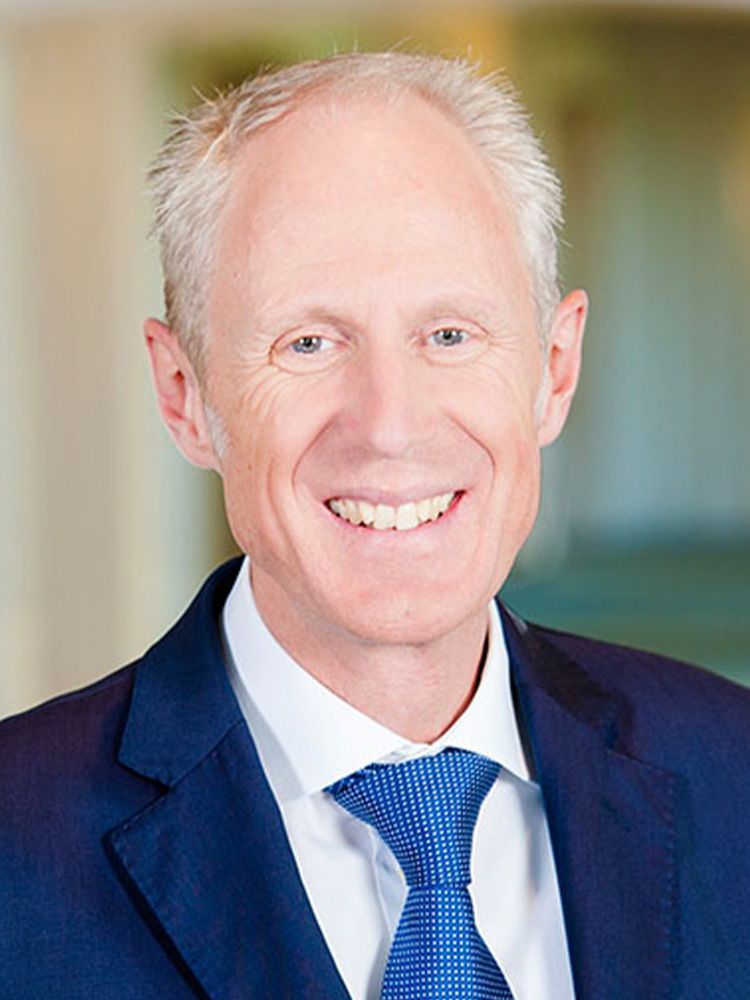
Jean-Christophe Deslarzes became chair of both Adecco Group and Innovation Foundation in 2020
Jean-Christophe Deslarzes became chair of both Adecco Group and Innovation Foundation in 2020
Inside the lab: sport, music and more
The lab operates in three stages: “scan”, where the foundation identifies who is falling out of work and why; “build”, where it develops solutions in partnership with experts and end users; and “scale”, where it prepares the ventures to move on from the lab and find the right partners to take them forward indefinitely.
The first two projects the innovation lab developed and completed – when it was still Adecco Group Foundation – emerged from relationships it inherited from former Adecco Group sponsorships with the Lucerne Festival and the International Committee of the Red Cross.
Helping people with disabilities in emerging countries to enter the labour market
Created in partnership with the International Committee of the Red Cross (ICRC), the Career Development Programme supports people with disabilities to access employment by providing career training, enhancing awareness among employers and governments, creating more inclusive and accessible workplaces, and providing self-employment support.
The project went through the scan-build-scale pathway. The ICRC was already running a programme to help people with disabilities with physical rehabilitation and reintegration into society via sport, and the lab identified the need for employment support – precisely where Adecco Group’s expertise could come into play. The programme was built after trials and consultations, and launched in Jordan in 2019. Through a ‘train-the-trainer’ approach, the programme was replicated in other countries. In 2021, it was handed from the lab to the ICRC, and is now fully funded and staffed by the ICRC under its Physical Rehabilitation Programme.
Preparing young musicians for the world of work – on and off stage
In partnership with the Lucerne Festival – a world-renowned classical music festival in Switzerland, which also runs an academy for young musicians – the foundation identified an unmet need: helping early-career musicians to navigate the world of work. This can take many forms, from freelancing to employment to becoming an entrepreneur or manager, and young musicians are rarely prepared for any of these roles.
The scan phase involved research to understand how well-prepared young musicians were and where the gaps were; the build phase saw the development of the Young Musicians Training Programme, which has now been run for four years by the Lucerne Festival and an additional partner, the Davos Festival.
Felix Heri, head of contemporary at Lucerne Festival, says: “We created this programme together, because there was no content for musicians from the Adecco side, but a lot of know-how on how to create this kind of programme – on our side, we had our big network and all the knowledge regarding the specific needs of musicians.”
The scale phase prepared the programme to spin off elsewhere, and also included a train-the-trainer approach. The Young Musicians Training Programme is now looking for a permanent home – the partners involved hope it will be housed with an institution specialising in education such as a music academy.
Replicating success
Now there is a pipeline of new projects. Among those in development is a project that helps young mothers in the outskirts of Mexico City to increase their employability. The idea is that if this solution works in this particular area, it could potentially scale elsewhere in Latin America, and in other middle-income countries.
Picture: The Young Musicians Training Programme / Innovation Foundation
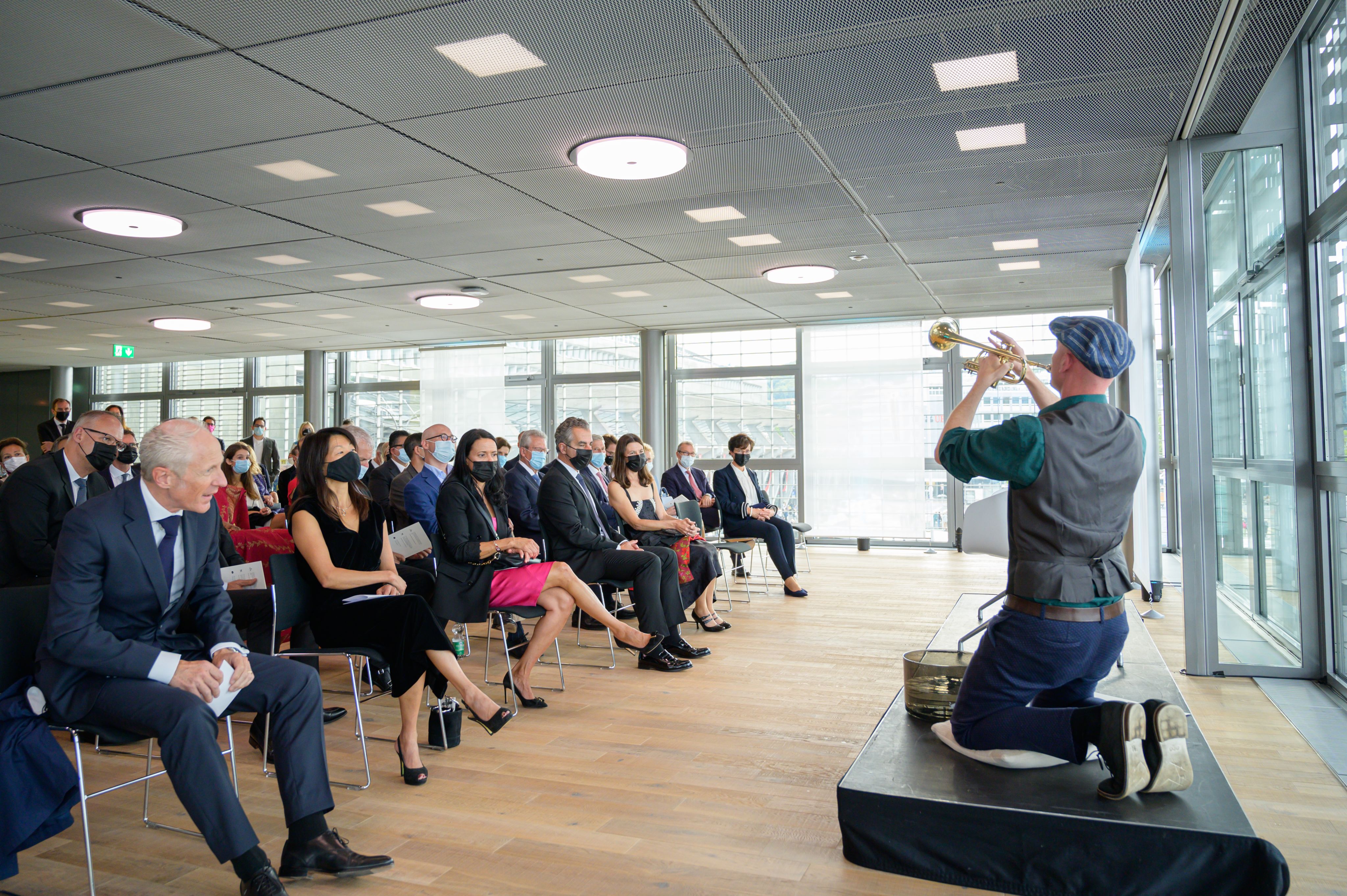
“From the Adecco side there was a lot of know-how on how to create this kind of programme – on our side, we had our big network and all the knowledge regarding the needs of musicians”
A new identity

As part of the new strategy, the Adecco Group Foundation became the Innovation Foundation. “The name change was the pivotal point,” says Hansen. “Before that, the name and the identity of the brand were so close to the group, that the external world didn't really differentiate what was in the group and what was outside of the group.”
A new team member responsible for communications (who also works for the group) made a big difference, says Hansen: “We can tell our own story, we have our brand, we have our own marketing collateral materials and we published our first annual report last year.” Having its own voice also enables the foundation to build the narrative around the future of work – a key theme of the wider Adecco Group – from the perspective of underserved people in disadvantaged communities.
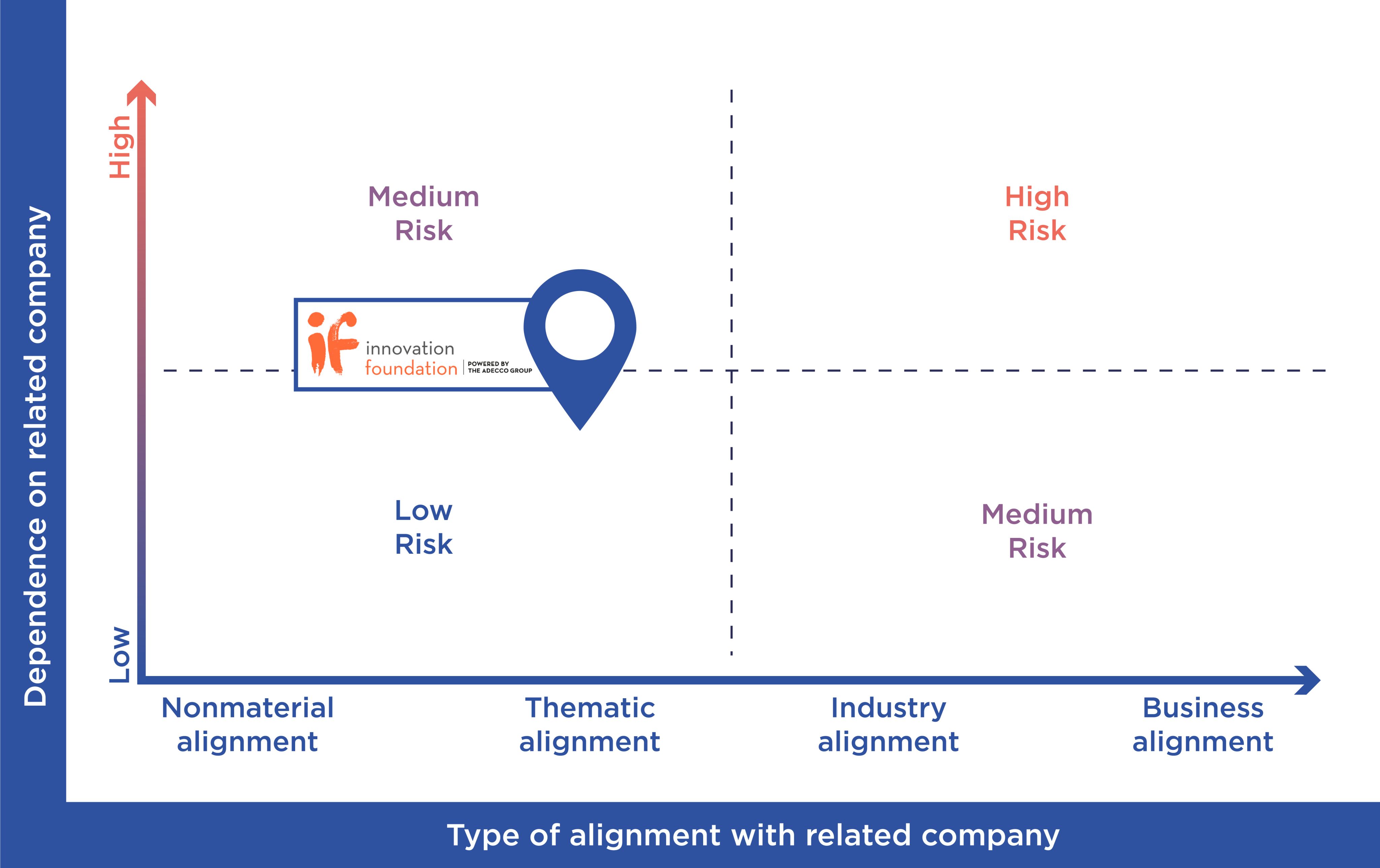
By decoupling its activities from the company, the Innovation Foundation lowered the risk of losing its impact integrity
By decoupling its activities from the company, the Innovation Foundation lowered the risk of losing its impact integrity
All but two members of the current team come from outside the company. The foundation has also appointed external board members: originally, all of them had a background in the Adecco Group. They were – like many corporate boards – originally all white, European, middle-aged men. Seeking members with more experience in the social sector and who better represented the foundation’s beneficiaries, the foundation appointed two women, Virginia Wilson, CEO of Shared Value Initiative Hong Kong, and Ory Okolloh, former managing director of the Omidyar Network and Luminate Group in Africa.
With its narrower remit, the foundation’s budget is now lower, at $4.5m per year. That enables it to run up to three projects a year – typically one at each of the scan, build, scale stages, with each project expected to take 18 months to be fully developed.
Entirely cutting ties with the business was never an intention for the Innovation Foundation, as it would miss out on the opportunity to leverage the company’s knowledge and networks – those precious non-financial resources that can make all the difference.
That is why it focuses on issues that are related to employment: the Adecco Group’s area of expertise. It leverages the company’s resources “carefully”, Hansen explains: for example, the foundation might bring in a particular employee to contribute to a project where they have relevant expertise. In turn, the employee can take back what they learned to their own department.
But the foundation is clear that it is not doing research and development for the company. “We're doing innovation for society. Everything we do, whether it's a product, or a paper, or research, has to be first publicly made available, open source, so that anybody can pick it up and use it – and again, we're not precious about what happens to it,” Hansen says.
“Impact integrity is about being really clear about our own vision, mission and values, and how those are complementary, but not the same as the group,” says Hansen.
The foundation’s approach creates complementarity while keeping its integrity, she adds: “We have to be very clear that we focus on underserved populations, on the people who are falling out of the workforce, or are in danger of falling out of the workforce, whereas the group focuses on everyone and all aspects of employment.”
Top picture: Jens Bracher, a trainer with the Young Musicians Training Programme © Innovation Foundation
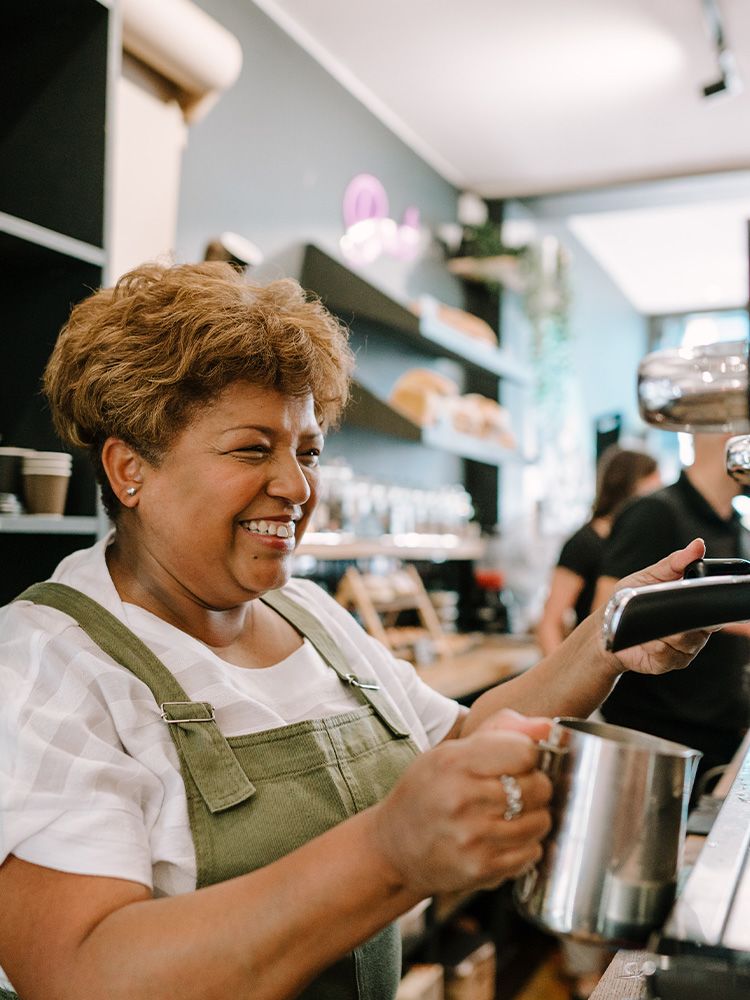
Like Adecco Group, Innovation Foundation focuses on the future of work – but with specific attention on disadvantaged communities
Like Adecco Group, Innovation Foundation focuses on the future of work – but with specific attention on disadvantaged communities

Innovation Foundation continues to leverage the resources of its parent company – carefully
Innovation Foundation continues to leverage the resources of its parent company – carefully

